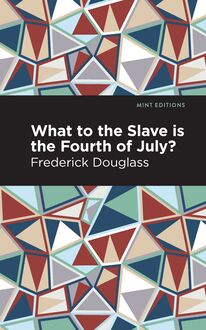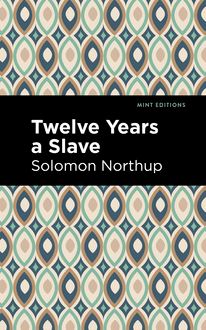-
 Univers
Univers
-
 Ebooks
Ebooks
-
 Livres audio
Livres audio
-
 Presse
Presse
-
 Podcasts
Podcasts
-
 BD
BD
-
 Documents
Documents
-
- Cours
- Révisions
- Ressources pédagogiques
- Sciences de l’éducation
- Manuels scolaires
- Langues
- Travaux de classe
- Annales de BEP
- Etudes supérieures
- Maternelle et primaire
- Fiches de lecture
- Orientation scolaire
- Méthodologie
- Corrigés de devoir
- Annales d’examens et concours
- Annales du bac
- Annales du brevet
- Rapports de stage
La lecture à portée de main
Vous pourrez modifier la taille du texte de cet ouvrage
Découvre YouScribe en t'inscrivant gratuitement
Je m'inscrisDécouvre YouScribe en t'inscrivant gratuitement
Je m'inscrisEn savoir plus
Vous pourrez modifier la taille du texte de cet ouvrage
En savoir plus

Description
Trial and Triumph (1888-1889) is a novel by Frances Ellen Watkins Harper. One of the first novels published by an African American woman, Trial and Triumph is a story of family, faith, and sacrifice that advocates for education and equality for all African Americans. Originally published in serial format in the Christian Recorder, an important and historical periodical connected to the African Methodist Episcopal Church, Trial and Triumph was rediscovered in the late twentieth century and has since been recognized as a groundbreaking work of fiction by the first African American woman to publish a novel.
At her modest home, Mrs. Harcourt discusses a recent controversy involving her granddaughter and an irate neighbor. Having sent Annette out to the grocery store for oil, she unwittingly gave the young girl an opportunity for mischief—on her way home, Annette managed to spill oil on Mrs. Larkins’ stoop, causing the particularly diligent housekeeper to curse the girl for her carelessness. Embarrassed but unsurprised, Mrs. Harcourt has grown accustomed to Annette’s wayward nature. Ever since her mother’s death, Annette—who was abandoned by her father at birth—has struggled to find purpose in life. With few opportunities for education, and despite her affinity for reading, Annette faces prejudice and indifference from her community, who remain either cautiously protective of their children or too involved with their own problems to pay heed to another struggling youth. Written in straightforward prose, Trial and Triumph is a politically conscious novel concerned with an African American community doing its best to overcome with love what little their lot is in life.
With a beautifully designed cover and professionally typeset manuscript, this edition of Frances Ellen Watkins Harper’s Trial and Triumph is a classic of African American literature reimagined for modern readers.
Sujets
Informations
| Publié par | Mint Editions |
| Date de parution | 26 janvier 2021 |
| Nombre de lectures | 0 |
| EAN13 | 9781513285177 |
| Langue | English |
| Poids de l'ouvrage | 2 Mo |
Informations légales : prix de location à la page 0,0350€. Cette information est donnée uniquement à titre indicatif conformément à la législation en vigueur.
Extrait
Trial and Triumph
Frances Ellen Watkins Harper
Trial and Triumph was first published in 1888.
This edition published by Mint Editions 2020.
ISBN 9781513280158 | E-ISBN 9781513285177
Published by Mint Editions®
minteditionbooks.com
Publishing Director: Jennifer Newens
Design & Production: Rachel Lopez Metzger
Project Manager: Micaela Clark
Typesetting: Westchester Publishing Services
C ONTENTS I II III IV V VI VII VIII IX X XI XII XIII XIV XV XVI XVII XVIII XIX XX
I
“ O h, that child! She is the very torment of my life. I have been the mother of six children, and all of them put together, never gave me as much trouble as that girl. I don’t know what will ever become of her.”
“What is the matter now, Aunt Susan? What has Annette been doing?”
“Doing! She is always doing something; everlastingly getting herself into trouble with some of the neighbors. She is the most mischievous and hard-headed child I ever saw.”
“Well what has she been doing this morning which has so upset you?”
“Why, I sent her to the grocery to have the oil can filled, and after she came back she had not been in the house five minutes before there came such an uproar from Mrs. Larkins’, my next door neighbor, that I thought her house was on fire, but—”
“Instead of that her tongue was on fire, and I know what that means.”
“Yes, that’s just it, and I don’t wonder. That little minx sitting up there in the corner looking so innocent, stopped to pour oil on her clean steps. Now you know yourself what an aggravating thing that must have been.”
“Yes, it must have been, especially as Mrs. Larkins is such a nice housekeeper and takes such pride in having everything neat and nice about her. How did you fix up matters with her.”
“I have not fixed them up at all. Mrs. Larkins only knows one cure for bad children, and that is beating them, and she always blames me for spoiling Annette, but I hardly know what to do with her. I’ve scolded and scolded till my tongue is tired, whipping don’t seem to do her a bit of good, and I hate to put her out among strangers for fear that they will not treat her right, for after all she is very near to me. She is my poor, dead Lucy’s child. Sometimes when I get so angry with her that I feel as though I could almost shake the life out of her, the thought of her dying mother comes back to me and it seems to me as if I could see her eyes looking so wistfully on the child and turning so trustingly to me and saying, ‘Mother, when I am gone won’t you take care of Annette, and try to keep her with you?’ And then all the anger dies out of me. Poor child! I don’t know what is going to become of her when my head is laid low. I’m afraid she is born for trouble. Nobody will ever put up with her as I do. She has such an unhappy disposition. She is not like any of my children ever were.”
“Yes. I’ve often noticed that she does seem different from other children. She never seems light-hearted and happy.”
“Yes, that is so. She reminds me so of poor Lucy before she was born. She even moans in her sleep like she used to do. It was a dark day when Frank Miller entered my home and Lucy became so taken up with him. It seemed to me as if my poor girl just worshiped him. I did not feel that he was all right, and I tried to warn my dear child of danger, but what could an old woman like me do against him with his handsome looks and oily tongue.”
“Yes,” said her neighbor soothingly, “you have had a sad time, but still we cannot recall the dead past, and it is the living present with which we have to deal. Annette needs wise guidance, a firm hand and a loving heart to deal with her. To spoil her at home is only to prepare her for misery abroad.”
“I am afraid that I am not equal to the task.”
“If any man lack wisdom we are taught to ask it of One who giveth liberally to all men and upbraideth none. There would be so much less stumbling if we looked earnestly within for ‘the light which lighteth every man that cometh into the world.’”
“Well,” said Mrs. Harcourt, Annette’s grandmother, “there is one thing about Annette that I like. She is very attentive to her books. If you want to keep that child out of mischief just put a book in her hand; but then she has her living to get and she can’t get it by nursing her hands and reading books. She has got to work like the rest of us.”
“But why not give her a good education? Doors are open to her which were closed against us. This is a day of light and knowledge. I don’t know much myself, but I mean to give my girls a chance. I don’t believe in saying, let my children do as I have done, when I think some of us have done poorly enough digging and delving from morning till night. I don’t believe the good Lord ever sent anybody into his light and beautiful world to be nothing but a drudge, and I just think it is because some take it so easy that others, who will do, have to take it so hard.”
“It always makes my blood boil,” said a maiden lady who was present, “to see a great hulk of a man shambling around complaining of hard times, and that he can’t get work, when his wife is just working herself down to the grave to keep up the family.” I asked Mrs. Johnson, who just lives in the wash tub and is the main stay of her family, what would her husband do if she were to die? and she said, ‘get another wife.’ Now, I just think she has spoiled that man and if she dies first, I hope that he will never find another woman to tread in her footsteps. He ought to have me to deal with. When he got through with me he would never want to laze around another woman.”
“I don’t think he ever would,” said Mrs. Harcourt, while a gleam of humor sparkled in her eye. Her neighbor was a maiden lady who always knew how to manage other people’s husbands, but had never succeeded in getting one of her own, and not having any children herself understood perfectly well how to rate other people’s.
Just then a knock was heard at the door and Mr. Thomas, Annette’s former school teacher, entered the room. After an exchange of courtesies he asked, “How does Annette come on with her new teacher?”
“I have not heard any complaint,” said Mrs. Harcourt. “At first Mrs. Joseph’s girl did not want to sit with Annette, but she soon got over it when she saw how well the other girls treated Annette and how pleasant the teacher was to her. Mr. Scott, who has been so friendly to us, told us not to mind her; that her mother had been an ignorant servant girl, who had married a man with a little money; that she was still ignorant, loud and [dressy?] and liked to put on airs. The nearer the beggar the greater the prejudice.”
“I think it is true,” said Mr. Thomas. “If you apply those words, not to condition, but human souls, for none but beggarly souls would despise a man because of circumstances over which he had no control; noble, large-hearted men and women are never scornful. Contempt and ridicule are the weapons of weak souls. I am glad however, that Annette is getting on so well. I hope that she will graduate at the head of her class, with high honors.”
“What’s the use of giving her so much education? there are no openings for her here, and if she gets married she won’t want it,” and Mrs. Harcourt sighed as she finished her sentence.
Mr. Thomas looked grave for a moment and then his face relaxed into a smile. “Well, really, Mrs. Harcourt, that is not very complimentary to us young men; do we have no need of intelligent and well educated wives? I think our race needs educated mothers for the home more than we do trained teachers for the school room. Not that I would ignore or speak lightly of the value of good colored teachers nor suggest as a race, that we can well afford to do without them; but to-day, if it were left to my decision, whether the education of the race should be placed in the hands of the school teacher or the mothers and there was no other alternative, I should, by all means, decide for the education of the race through its motherhood rather than through its teachers.”
“But we poor mothers had no chance. We could not teach our children.”
“I think you could teach some of them more than they wish to learn; but I must go now; at some other time we will talk on this subject.”
II
“ O h, Annette!” said Mrs. Harcourt, turning to her granddaughter after Mr. Thomas had left the door; “What makes you so naughty? Why did you pour that oil on Mrs. Larkin’s steps; didn’t you know it was wrong?”
Annette stood silent looking like a guilty culprit.
“Why don’t you answer me; what makes you behave so bad?”
“I don’t know, grandma, I ’specs I did it for the devil. The preacher said the devil makes people do bad things.”
“The preacher didn’t say any such thing; he said the devil tempts people to be bad, but you are not to mind every thing the devil tells you to do, if you do, you will get yourself into a lot of trouble.”
“Well, grandma, Mrs. Larkins is so mean and cross and she is always telling tales on me and I just did it for fun.”
“Well, that is very poor fun. You deserve a good whipping, and I’ve a great mind to give it to you now.”
“Why don’t she let me alone; she is all the time trying to get you to beat me. She’s a spiteful old thing anyhow. I don’t like her, and I know she don’t like me.”
“Hush Annette, you must not talk that way of any one so much older than yourself. When I was a child I wouldn’t have talked that way about any old person. Don’t let me hear you talk that way again. You will never rest till I give you a good whipping.”
“Yes ma’m,” said Annette very demurely.
“Oh, Annette!” said her grandmother with a sudden burst of feeling. “You do give me so much trouble. You give me more worry than all my six children put together; but there is always one scabby sheep in the flock and you will be that one. Now get ready for school and don’t let me hear any more complaints about you; I am not going to let you worry me to death.”
Annette took up her bonnet and glided quietly out
-
 Univers
Univers
-
 Ebooks
Ebooks
-
 Livres audio
Livres audio
-
 Presse
Presse
-
 Podcasts
Podcasts
-
 BD
BD
-
 Documents
Documents
-
Jeunesse
-
Littérature
-
Ressources professionnelles
-
Santé et bien-être
-
Savoirs
-
Education
-
Loisirs et hobbies
-
Art, musique et cinéma
-
Actualité et débat de société
-
Jeunesse
-
Littérature
-
Ressources professionnelles
-
Santé et bien-être
-
Savoirs
-
Education
-
Loisirs et hobbies
-
Art, musique et cinéma
-
Actualité et débat de société
-
Actualités
-
Lifestyle
-
Presse jeunesse
-
Presse professionnelle
-
Pratique
-
Presse sportive
-
Presse internationale
-
Culture & Médias
-
Action et Aventures
-
Science-fiction et Fantasy
-
Société
-
Jeunesse
-
Littérature
-
Ressources professionnelles
-
Santé et bien-être
-
Savoirs
-
Education
-
Loisirs et hobbies
-
Art, musique et cinéma
-
Actualité et débat de société
- Cours
- Révisions
- Ressources pédagogiques
- Sciences de l’éducation
- Manuels scolaires
- Langues
- Travaux de classe
- Annales de BEP
- Etudes supérieures
- Maternelle et primaire
- Fiches de lecture
- Orientation scolaire
- Méthodologie
- Corrigés de devoir
- Annales d’examens et concours
- Annales du bac
- Annales du brevet
- Rapports de stage




















